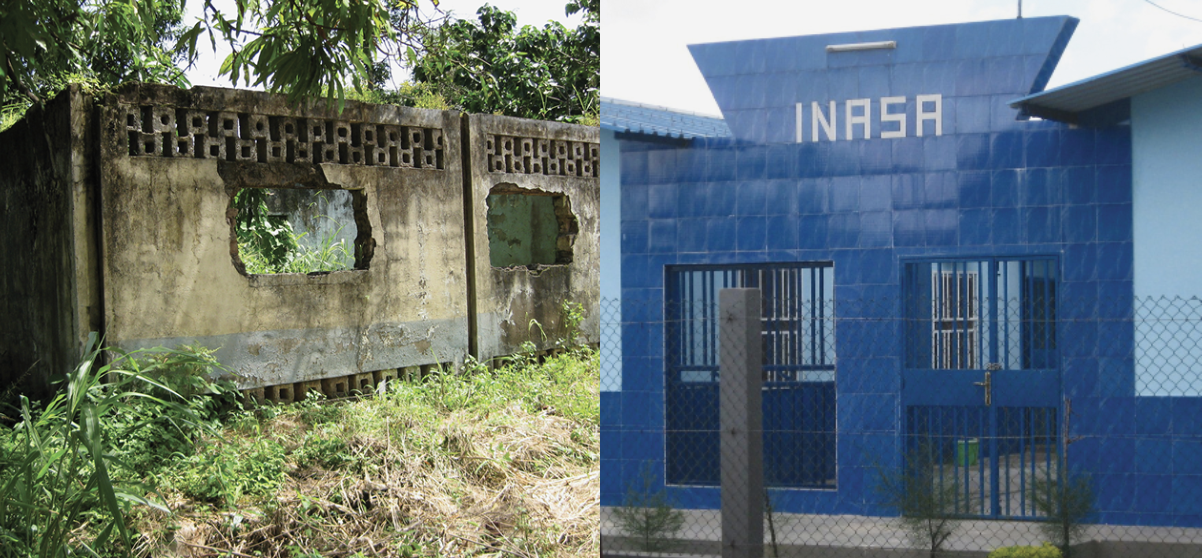With IANPHI Support, Guinea-Bissau Launches National Institute
Before and after photos of project
In a small corner of West Africa, scientists and policymakers have big hopes for reviving a public health system shattered by bitter civil war. The conflict and bombings that ravaged Guinea-Bissau in the late 1990s disrupted economic growth, impoverished the country, and left the public health system weak and fragmented.
As optimism returns, the country’s leaders are championing efforts to rebuild. Propelled by enthusiastic leadership within the Ministry of Health (MoH), a team in Guinea-Bissau is working with colleagues from Brazil’s Fiocruz and IANPHI’s Secretariat to combine much of their current capacity into an NPHI and bring the components together in a central location. IANPHI is funding strategic investments in infrastructure that will position the new institute to secure support from other donors and serve as a model for other low-resource nations.
A dream of the country’s leaders since 1995, the new NPHI is becoming a reality. On October 14, 2008, the Council of Ministers formally created the Guinea-Bissau National Institute of Public Health (INASA), and NPHI development is underway.
“INASA represents hope for Guinea-Bissau’s public health future,” says Bandim Health Project Research director, Dr. Amabelia Rodrigues. “By coordinating and providing leadership for core public health functions, the new institute will transform our capacity to recognize and monitor health problems and respond with evidence-based policies and actions.”
The project aims to integrate many of the core public health functions currently being conducted in Guinea-Bissau into a single organizational structure within the MoH. Among the elements to be incorporated into the new NPHI are the National Laboratory of Public Health (laboratory capacity), Bandim Health Project (field epidemiology), MoH epidemiology and surveillance unit (disease surveillance), and National School of Public Health (workforce development).
Guinea-Bissau’s permanent secretary, Augusto Paulo Silva, said, “We are proud to be the first of IANPHI’s long-term NPHI development projects and to lead the way, especially in Africa, in building stronger national public health systems through the establishment of NPHIs.”
